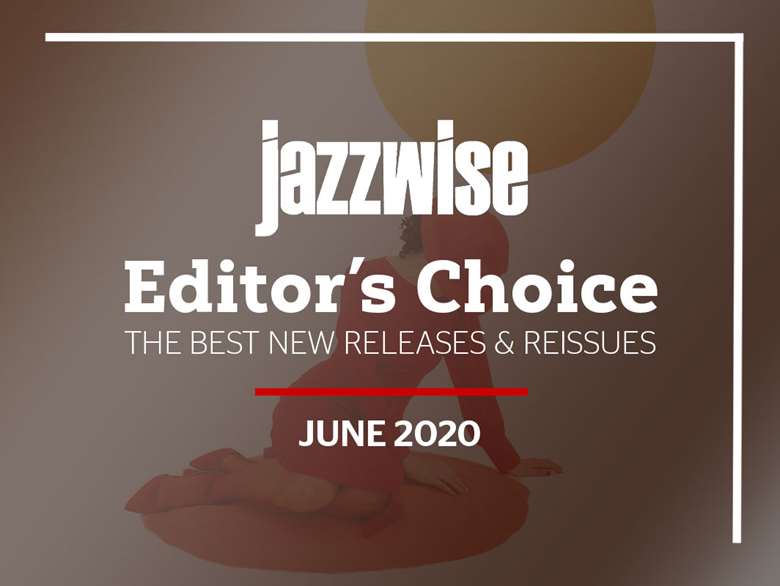The best new jazz albums: Editor's Choice, June 2020
Wednesday, May 27, 2020
The best new albums reviewed in the June issue of Jazzwise, featuring Andre Canniere, Laila Biali, Laura Jurd’s Dinosaur, Obradović-Tixier Duo, John Scofield and Sara Serpa


Andre Canniere
Ghost Days
(Whirlwind Recordings)
Andre Canniere (t, flhn), Tori Freestone (ts), Rick Simpson (p), (ky), Tom Farmer (b), Andrew Bain (d) and Brigitte Beraha (v). Rec. December 2018
This may be Canniere’s music, but it’s unremittingly a meeting of spirits. Canniere has set six poems by the (very different) writers Malika Booker and Rebecca Lynch in varying musical nests, from avant pop to free vocalese and even the odd march.
And Beraha’s role in moving between this rush of styles is crucial. Few vocalists could have managed the leaps between the poppy brass of ‘Colours’ to the despair of disintegrated emotions on ‘Erasure’. Andy Robson
Read the full review in the June issue of Jazzwise
Laila Biali
Out of Dust
(ACT)
Laila Biali (p, v, ky), plus various personnel including Glenn Patscha (org, ky), Rich Brown (b), Ben Wittman and Larnell Lewis (d)
I was a big fan of Laila Biali’s 2018 self-titled debut on ACT – for which she bagged Vocal Jazz Album of the Year at last year’s JUNO Awards – not least for the Vancouver-born vocalist, pianist and songwriter’s hook-laden writing. This follow-up is even better, with the sirenic power of Biali’s voice combining powerfully with the irresistible force of her storytelling. Peter Quinn
Read the full review in the June issue of Jazzwise

Laura Jurd’s Dinosaur
To The Earth
(Edition)
Laura Jurd (t, flhn, th), Elliot Galvin (p, synth), Conor Chaplin (b) and Corrie Dick (d)
Though Laura Jurd has kept on raising the high bar she set all the way back on her Landing Ground debut as a 22-year-old in 2012, the variety of the Hampshire-born trumpeter/composer’s work can still catch even her most attentive fans by surprise. To The Earth is her Dinosaur quartet’s third album - and though their first two were divertingly different, this 41-minute set is not only packed with striking melodies, but will warm the hearts of the most confirmed jazzers in Jurd’s audience without daunting the rest. John Fordham
Read the full review in the June issue of Jazzwise

Obradović-Tixier Duo
The Boiling Stories of a Smoking Kettle
(Naim Records)
David Tixier (p, v, elec) and Lada Obradovi (d, glock, v, elec)
‘Quirky’ is not a word to be bandied about lightly, particularly in a musical context – too often it’s a synonym for unlistenability, irritating flightiness, self-conscious eccentricity or grating perkiness; a desire to stand out that comes across as trying just that little bit too hard to be different. And when a record’s press blurb makes use of the word, warning lights inevitably start flashing. But relax: here’s an album that really is properly quirky – and in the most delightful way. It’s different, interesting, and, best of all, a recording that rewards repeated listening, becoming richer and more intriguing with every visit. Kevin Whitlock
Read the full review in the June issue of Jazzwise

John Scofield
Swallow Tales
(ECM)
John Scofield (g), Steve Swallow (el b) and Bill Stewart (d). Rec. March 2019
John Scofield met Steve Swallow at Berklee half a century ago, in a student-teacher connection that became a playing partnership and a lifelong friendship. That rapport (which Scofield has described ‘like one big guitar, the bass part and my part together’) is celebrated in this spirited exploration of nine Swallow originals, on which the pair are joined by Bill Stewart, Scofield’s drummer of choice for years. John Fordham
Read the full review in the June issue of Jazzwise

Sara Serpa
Recognition: Music For A Silent Film
(Biophilia)
Sara Serpa (v), Zeena Parkins (hp, tuning forks), Mark Turner (ts) and David Virelles (p)
As the subtitle makes clear, the premise of this work is audio-visual. Yet what is even more compelling is the specific theme of Portugese colonialism in Angola, depicted in Super 8 archive footage during the concert that took place prior to the studio session. Vocalist-composer-narrator Sara Serpa thus addresses the western world’s ‘collective shameful past of occupation, exploitation, slave trade, oppression, racism, segregation, violence and abuse’, and her greatest achievement is that all the above phenomena are not conveyed with histrionics or outpourings of anger. In fact, the sustained intensity of Serpa’s song cycle stems from the focused containment and understatement of the sound world she has crafted. Kevin Le Gendre
